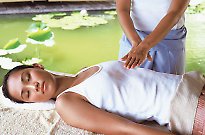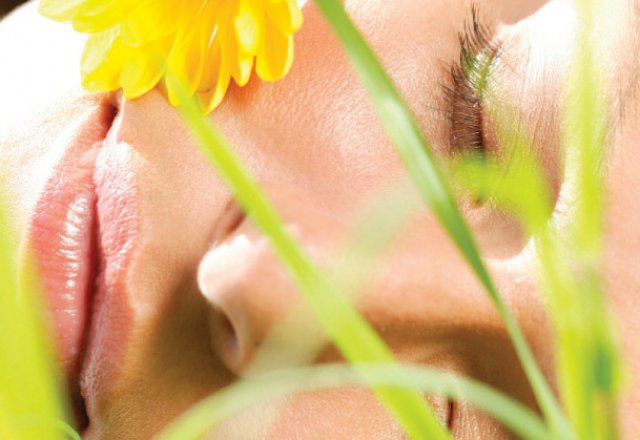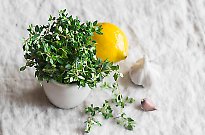
Heal your health, get back to nature

Amid the day-to-day pressures of work and family life, many of us forget what fabulous benefits a brush with nature can bring
Even if it’s just a five minute dose of sunshine in the nearest public park. Linda Smith reminds us why it’s so important for us to attune with Mother Earth.
TAKE SOME TIME
Sure, some exercise in the fresh air gets our brain going and our heart pumping, but research also suggests that if we spent a bit more time attuning with the natural world around us – rather than loafing on the couch glued to the television or staring at our laptops – we could benefit greatly.
Whether you’re going for a mountain trek, taking your dog for a walk around the block, getting outside to grow vegies in the backyard or simply switching off the TV for a few minutes of quiet reflection, experts believe that getting in touch with nature is great for the body, mind, and soul. Consider making a few simple tweaks to your daily schedule to improve your connection.
Our minds are like sponges and we’re constantly soaking up everything around us. From work and family obligations to the state of politics and the economy, we suck in all this stuff on conscious, unconscious and subconscious levels.
The trick, says stress management consultant Will Shacklock, is to be selective about what we choose to soak up.
“Computers, email, phones, games and the internet consume huge amounts of our energy and attention,” explains Will, who runs Learn to Relax, a Melbourne-based business that helps people better cope with anxiety and stress (www.learntorelax.com.au).
“Put simply, we’re addicted to entertainment.
“When we sit down to watch TV, we’re not content to watch a slow-moving nature documentary for hours on end. We want action and drama and crave the emotional roller coaster that modern-day television provides.”
A negative impact
Will says through repeated practice, we train our bodies and minds to be habitually switched on. To the point where we can find it impossible to switch off. We become so used to being stimulated that life seems boring without it.
Because of this, Will says that many people struggle to be content with what they have and always strive for more. The constant desire to have our needs met and our egos stroked can be exhausting physically, mentally, emotionally and spiritually, with a negative effect on our health and relationships.
But he says that rather than turning to medication to help deal with stress-related conditions like anxiety, depression, insomnia, chronic pain, hypertension and digestive disorders, people should try to break the cycle – and attune with nature.
“Just as we’ve trained ourselves to be habitually switched on, we can train ourselves to switch off and restore balance, calmness and peace to our nervous system,” he explains.
Bringing nature into your life
Will says that when most of us think about connecting with nature, we imagine ourselves walking through rainforests, sailing or camping and there is merit in these activities. However, before you rush out and splash cash on a nature retreat, you should consider a more realistic plan of attack that is cheap, easy and can be implemented straight away.
“What we can do is bring nature closer to us,” explains Will, who recommends we start eliminating distractions to transform our homes and offices into places that make a connection with nature.
“We can light incense and candles and encourage the natural light. We can plant vegies and herbs – both indoors and out. We can fill our lives with the sights, sounds and scents of nature, even if we live in an inner-city apartment.
“In time, you may just discover an urge to drape a shawl over the TV, turn the couch around and play board games with your kids, or rediscover the amazing conversation that first attracted you to your partner. The key is to start small and bit by bit, in a way that is special for you, connect with the things that nurture your soul.”
Will says the important thing is that we remember to look, listen and feel what is happening in the world around us, as practicing this connection with nature can help us feel more balanced, calm and focused, even in stressful situations.
Start by bringing awareness to simple, everyday activities – like cleaning your teeth. Take notice of the taste and smell of the toothpaste, the sound and sensation of the brush against your teeth, the movement of your lips, tongue and cheeks. Shut your eyes and really observe the experience. If you grip your toothbrush tightly, try brushing with a lighter grip. You’ll probably find you are brushing more slowly, you are cleaning your teeth more thoroughly and overall you enjoy the experience more.
Practicing mindfulness
By regulating our attention in this way, we switch off our fight-or-flight stress response and activate our parasympathetic nervous system (PNS). The PNS is our very own healing mechanism, which revives, recharges and rejuvenates our cells. Taking a break from work and going for a conscious walk (while observing your breath and the sounds and movements along the way) switches on your PNS and starts to revitalise you – your breathing slows and deepens and the tension in your body falls away.
“When we’re able to connect with nature, to just observe the sound of the wind, the waves of the ocean, the chatter of birds or the grandeur of an ancient forest, we’re re-training ourselves to appreciate, to truly experience, the things in our lives that peacefully exist without any form of intellectual judgement,” says Will.
“Nature gives us the freedom to truly connect with our inner selves and release the tensions that inevitably accumulate as a result of a hectic world.”
Using touch to reconnect
Natural therapies like massage, meditation, and aromatherapy are all considered techniques to help us attune with nature. Reiki practitioner John Coleman believes people would be less stressed if they embraced such practices.
Reiki – a non-invasive form of healing therapy – promotes relaxation and wellbeing through releasing the body’s energy flow. And since the universe is based on various forms of energy moving around and within us, it makes sense that this practice could bring us closer to nature.
“The underlying philosophy of reiki is that if a person’s ‘life force energy’ is low, they are more likely to be unwell or stressed,” explains John, who is president of the Australian Reiki Connection (www.australianreikiconnection.com.au).
“If it is high, however, they are more capable of being happy and feeling well. Reiki will not cure illnesses or disease, but it may help your body to heal itself.”
He says practitioners often compare the body’s energy to a river. “Our energy should flow easily through the body,” he says. “Occasionally a pebble, or even a rock, will fall into that river and make the flow of the water a little more difficult. These pebbles are human worries, fears and anger. Each pebble builds on top of the other. Soon there is only a trickle of water running in that once free-flowing river.”
John says complementary therapies like reiki are being used more widely in Australia and worldwide as people seek ways to reconnect with nature.
“Sadly, society gets caught up in the hustle and bustle of everyday living and the pressures of society. Only when people are struck down with an illness or other serious issues do they start to look at their lifestyle,” he says. “But there is a shift in this way of thinking. More people are realising that there has to be a better way to deal with all of this stress and prevent these stresses building to a point where they become damaging.
“The more time people can spend in nature, taking time out to relax, the better we will be in the long term.”


